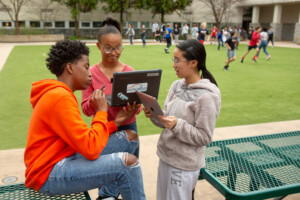Smart Review | The Un-Prescription for Autism

By Courtnie Rederick
As an autism mom and a special education teacher, I was excited for the opportunity to read The Un-Prescription for Autism by Dr. Janet Lintala.
My son has a comorbid diagnosis of both ADHD and high functioning autism. I spent multiple months deliberating over whether or not to medicate my son and ultimately ended up going the medication route, so I was intrigued to see what other options may be out there in addition to the prescription that he currently takes.
Lintala covers a wide variety of natural options that may help alleviate a variety of symptoms and suggests that doctors often jump right to prescription medications before looking at natural alternatives or checking for other underlying issues. She argues that by taking this approach, physicians may be missing the fundamental reason in regards to why a child is displaying such adverse symptoms.
Many autism parents have heard of the gluten-free, casein-free (GFCF) diet. I know that I read quite a bit about this diet shortly after my son was diagnosed and even tried it for a short period of time. The diet was extremely hard to implement and I found that after a couple of days my son was eating next to nothing. Needless to say, the GFCF did not end up lasting very long in my house. Lintala gives a relatively easy alternative to the GFCF diet that will reap the same benefits without having to go to such drastic measures in regards to diet elimination. Digestive enzymes that contain DPP-IV will help break down gluten and casein when taken with every meal. I was thrilled to read that the use of digestive enzymes can help with social skills, gut health, sleep and improved cognitive functioning.
Within the book, Lintala also discusses a variety of other natural alternatives for autism including antimicrobial rotations, probiotic use and diet alternatives such as the Feingold diet. She goes into specific detail in regards to which supplements should be used and how often they should be given. In addition, Lintala discusses which supplements/diet should be used depending upon what type of symptoms a child is displaying.
After reading Lintala’s book, my immediate thought was that I really wished that some of these alternatives were mentioned to me immediately after my son was diagnosed. Today, my thought is that it is better late than never. There are so many success stories in her book that I am inclined to give her suggestions a try.
As a mother, I want to do everything in my power to help my son. I have invested multiple hours a week into speech therapy, occupational therapy and applied behavior analysis. My question is this, “Why wouldn’t I try natural supplements with my son?” I do believe that in some cases medication is needed, but after reading The Un-Prescription for Autism, I think that there are many children who are over-medicated, and that the underlying issues are never properly addressed.
Looking forward, I am excited to see if there are positive changes in my son after we try the protocols addressed in Lintala’s book. Choosing to medicate my child was a difficult decision, but I ultimately chose to go this route in an effort to make life easier for my son. I am hopeful that by incorporating probiotics and enzymes into my son’s diet, that we may eventually be at a place where prescription medication is no longer needed.
I would definitely recommend this book to other parents, especially parents who may be looking for alternatives to classic prescription medications. I would also encourage parents like myself, who may already be medicating their child, to read this book. In hindsight, my only wish is that I had the opportunity to read this book sooner, but I am grateful that I am now better educated in regards to the natural treatment options that are available for some of the symptoms that are manifested by autism and other comorbid disorders.
For more see:
- To My Autistic Son’s New Teacher, Before the First Day of School
- Better Understand Autism with Help from Dr Barry Prizant’s New Book: Uniquely Human
- Camp Discovery App from the Center for Autism and Related Disorders
Courtnie Rederick is a special education teacher, blogger and an autism mom. Follow her on Twitter: @diaryautismmom.
Stay in-the-know with all things EdTech and innovations in learning by signing up to receive the weekly Smart Update.





0 Comments
Leave a Comment
Your email address will not be published. All fields are required.